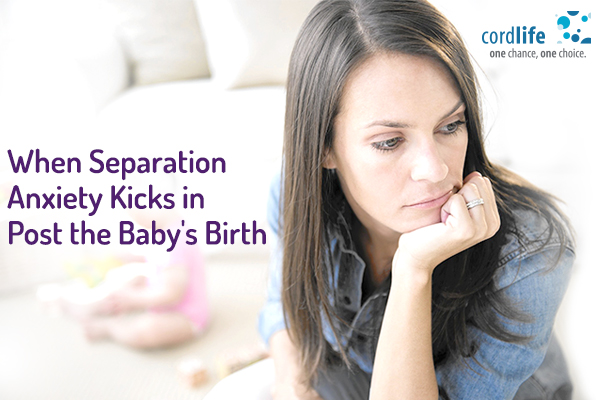Table of Contents
It is heartbreaking to see the tears rolling down the cheeks of your baby when leaving her at preschool or to your babysitter. The scene repeats every day, and it wrecks heavily upon your emotional well- being as well as your baby’s.
The aching of separation for both deepens with each passing day, leaving you nuts with no solutions being handy to get out of the situation. You are not alone to experience the ordeal months after months once your baby is going through her development stage. Every mom and dad in the alley walks past this situation and becomes apprehensive. The situation is nothing but separation anxiety, which is a growing concern for every parent.
So, why does this stage in the baby’s life arrive, and leave your life in jeopardy?
Separation Anxiety and its Relevance
Separation anxiety takes its toll on your baby and you when your baby is too young at age of 6-7 months, and the effects of the disorder continue to be impactful on them until they go beyond their toddlerhood.It is normal though; its effects ruin your normal life and interfere with your baby’s daily activities. Just because of the impact of separation anxiety, your baby seems to be clingier, loves to be around you always, even if you have important chores to do. Everything appears to be normal until you disappear from her sight, and the loud screams and yelling keep nagging everyone around, and even those in your neighborhood. This is what raises the insecurity and fear of loneliness in their subconscious minds.
When you leave out of your baby’s sight, she is more likely to believe that you have gone out, without leaving any signs of returning back. The adverse thinking develops in her as she is unable to develop the concept of time. This makes her sobbing, distressed and turns her into a spider monkey that clings to your legs firmly.
Maybe, this is worrying for you, but in another perspective, it is a healthy sign of great bonding and attachment. With times and through the expression of separation anxiety, your baby becomes more attached to you and close ones, who stay with her.
This is entirely different from the early stage of her birth. At an early age, the sense of object permanence does not grow into her, and defers her from identifying, and observing things around her. That’s the reason why she is passed between adults quite easily, while the same becomes difficult once she is in her infancy. By this time, your baby is well aware of the facts and concepts of object permanence. Hence, because of the object permanence, she can realize that you exist even though not present in her sight.
How to Deal With Your Baby’s Separation Anxiety
The signs and symptoms of separation anxiety vary from phase to phase of a baby’s life. So, the techniques and tricks to handle the issue of separation anxiety should be different also.
Infant/Baby
As soon as your baby turns six months, introduce her to the caregiver. This is good to make her accustomed to new people.
Never make your departure emotional. Develop a good body language that sends a soothing vibe to her, and does not allow her to experience loneliness.
Toddler
Keeping your baby busy with loads of responsibilities is a good trick to help her get over the separation anxiety. Forget not to remind your baby about your departure and also the arrival to make her used to your daily routine. Follow this through.
Make sure to leave when your baby has a full stomach and is going for a nap. This is important as tired and hungry babies are more likely to cry in your absence.
Never sneak out when your baby is inattentive. Tell her about when you are leaving. If you don’t tell her, she will think that you can disappear anytime.
So, is there any way to prevent separation anxiety? The answer is, no! But what one can do is to identify the signs and see to it that measures are taken at the appropriate times to minimize stress on both the child and the parents.
